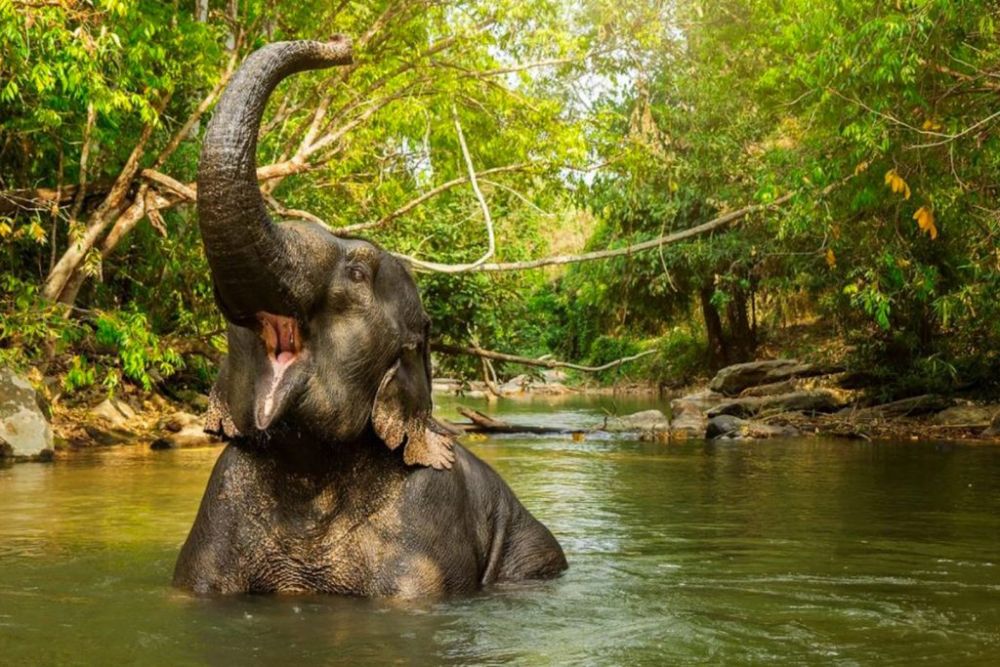

The story of the Elephant Jungle Sanctuary begins with a growing awareness and concern for the ethical treatment of elephants in Thailand. Historically, elephants in Thailand were used in the logging industry, but after logging was banned in 1989, many elephants were put to work in tourism, often under poor conditions. This includes activities such as elephant rides, circuses, and street begging, which can be harmful to the animals' health and wellbeing.
As global awareness of animal welfare increased, so did the demand for ethical tourism options. It became apparent to conservationists and animal advocates that a new, humane model for elephant tourism was necessary. In response to this, the Elephant Jungle Sanctuary in Phuket was founded in the early 2010s as a joint initiative between members of the Karen hill-tribes and local residents. The main goal was to provide a sanctuary for elephants to live in a natural environment while educating visitors on the elephants' behavior, biology, and history.
The sanctuary started with a handful of elephants and has since grown in size and reputation. From the outset, the Elephant Jungle Sanctuary rejected the traditional activities that exploit elephants, instead offering a chance for tourists to observe and interact with elephants in a respectful and non-invasive way. Activities such as feeding, mud-bathing, and walking with the elephants became the main attractions.
In recent years, the Elephant Jungle Sanctuary and other similar ethical animal tourism spots have become increasingly popular, reflecting a more conscientious global tourism trend. Tourists are now seeking immersive, educational, and sustainable experiences that align with their values. This shift has also been driven in part by the rise of social media, which has increased the visibility of ethical tourism practices.
The success of the Elephant Jungle Sanctuary has had a positive impact on both elephant welfare and local communities. It offers a humane and sustainable alternative for employment of both elephants and their mahouts (traditional elephant caretakers), who might otherwise be involved in more exploitative forms of tourism. The sanctuary also plays a role in local education and conservation efforts, highlighting the importance of protecting Thailand's elephant population.
Visitors to the Elephant Jungle Sanctuary in Phuket can expect an ethical, educational, and enjoyable experience. The sanctuary offers various packages ranging from half-day visits to full-day adventures, with transportation options typically included. It's important for tourists to book their visits in advance due to the popularity of the sanctuary and its commitment to maintaining a low-impact, peaceful environment for the elephants.